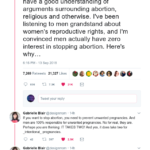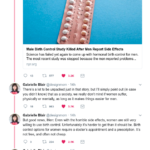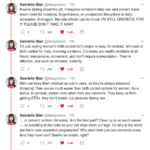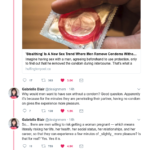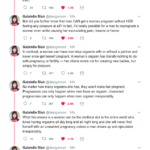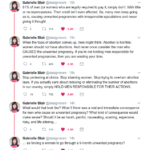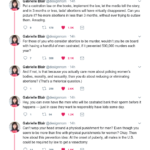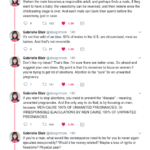One of the things that I really love about this season of Doctor Who is that with the make up of the cast this season, we’re getting the chance to see stories that previously seasons really couldn’t tell with a male Doctor and an overwhelmingly white companion collection. (They never really took much advantage of Martha being a black woman and it was used mostly as a plot device to keep her out of scenes in Family of Blood… am I still bitter about how underused Martha was because she was excellent and deserved better? … perhaps)
But you couldn’t effectively tell a story like Rosa without characters of color who experience first hand the impacts of segregation in he American South. Sure you could have a white Doctor and white companions visit and go ‘segregation is bad, look separate water fountains’ but it’s much more impactful as a lived experience. In Demons of the Punjab, it’s the lived experience of Yaz’s family and it’s not a story that writers would think to use without Yaz as a character. It’s a chance to see an aspect of history not usually touched on in British storytelling, and if it is it’s with a colonial bent. But here you get the lived experience of Yaz’s Nan.
And with the Doctor being a woman, they’re aren’t shying away from pointing out the Doctor’s frustration each time something she’s gotten away with easily in her 12 male forms doesn’t come as easy now that she’s in a female form. In The Witchfinders, of course she’s going to use her psychic paper to show that she’s the witchfinder general, large and in charge. But sexism being what it is, and the psychic paper showing what the person reading it wants to see, of course as soon as it’s a man in power he can’t even fathom that she would be in charge so he reads that she’s an assistant. And tonight gave us yet another story that you couldn’t have told without a female Doctor – the Doctor being tried as a witch. Any other season would’ve had to have one of the companions be the one on trial, but because the Doctor is a woman now she can have that lived experience.
It’s just one more thing that I’m really enjoying about this season. I’ve loved Doctor Who for a long time, and I’ve loved many Doctors, but y’all I am so here for the opportunity for new stories and lived experiences. It opens up so many doors for exciting untold stories on this show and I’m so glad they’re taking advantage of it.
on fanfic & emotional continuity
Writing and reading fanfic is a masterclass in characterisation.
Consider: in order to successfully write two different “versions” of the same character – let alone ten, or fifty, or a hundred – you have to make an informed judgement about their core personality traits, distinguishing between the results of nature and nurture, and decide how best to replicate those conditions in a new narrative context. The character you produce has to be recognisably congruent with the canonical version, yet distinct enough to fit within a different – perhaps wildly so – story. And you physically can’t accomplish this if the character in question is poorly understood, or viewed as a stereotype, or one-dimensional. Yes, you can still produce the fic, but chances are, if your interest in or knowledge of the character(s) is that shallow, you’re not going to bother in the first place.
Because ficwriters care about nuance, and they especially care about continuity – not just literal continuity, in the sense of corroborating established facts, but the far more important (and yet more frequently neglected) emotional continuity. Too often in film and TV canons in particular, emotional continuity is mistakenly viewed as a synonym for static characterisation, and therefore held anathema: if the character(s) don’t change, then where’s the story? But emotional continuity isn’t anti-change; it’s pro-context. It means showing how the character gets from Point A to Point B as an actual journey, not just dumping them in a new location and yelling Because Reasons! while moving on to the next development. Emotional continuity requires a close reading, not just of the letter of the canon, but its spirit – the beats between the dialogue; the implications never overtly stated, but which must logically occur off-screen. As such, emotional continuity is often the first casualty of canonical forward momentum: when each new TV season demands the creation of a new challenge for the protagonists, regardless of where and how we left them last, then dealing with the consequences of what’s already happened is automatically put on the backburner.
Fanfic does not do this.
Fanfic embraces the gaps in the narrative, the gracenotes in characterisation that the original story glosses, forgets or simply doesn’t find time for. That’s not all it does, of course, but in the context of learning how to write characters, it’s vital, because it teaches ficwriters – and fic readers – the difference between rich and cardboard characters. A rich character is one whose original incarnation is detailed enough that, in order to put them in fanfic, the writer has to consider which elements of their personality are integral to their existence, which clash irreparably with the new setting, and which can be modified to fit, to say nothing of how this adapted version works with other similarly adapted characters. A cardboard character, by contrast, boasts so few original or distinct attributes that the ficwriter has to invent them almost out of whole cloth. Note, please, that attributes are not necessarily synonymous with details in this context: we might know a character’s favourite song and their number of siblings, but if this information gives us no actual insight into them as a person, then it’s only window-dressing. By the same token, we might know very few concrete facts about a character, but still have an incredibly well-developed sense of their personhood on the basis of their actions.
The fact that ficwriters en masse – or even the same ficwriter in different AUs – can produce multiple contradictory yet still fundamentally believable incarnations of the same person is a testament to their understanding of characterisation, emotional continuity and narrative.
So I was reading this rumination on fanfic and I was thinking about something @involuntaryorange once talked to me about, about fanfic being its own genre, and something about this way of thinking really rocked my world? Because for a long time I have thought like a lawyer, and I have defined fanfiction as “fiction using characters that originated elsewhere,” or something like that. And now I feel like…fanfiction has nothing to do with using other people’s characters, it’s just a character-driven *genre* that is so character-driven that it can be more effective to use other people’s characters because then we can really get the impact of the storyteller’s message but I feel like it could also be not using other people’s characters, just a more character-driven story. Like, I feel like my original stuff–the novellas I have up on AO3, the draft I just finished–are probably really fanfiction, even though they’re original, because they’re hitting fanfic beats. And my frustration with getting original stuff published has been, all along, that I’m calling it a genre it really isn’t.
And this is why many people who discover fic stop reading other stuff. Once you find the genre you prefer, you tend to read a lot in that genre. Some people love mysteries, some people love high-fantasy. Saying you love “fic” really means you love this character-driven genre.
So when I hear people be dismissive of fic I used to think, Are they just not reading the good fic? Maybe I need to put the good fic in front of them? But I think it turns out that fanfiction is a genre that is so entirely character-focused that it actually feels weird and different, because most of our fiction is not that character-focused.
It turns out, when I think about it, I am simply a character-based consumer of pop culture. I will read and watch almost anything but the stuff that’s going to stick with me is because I fall for a particular character. This is why once a show falters and disagrees with my view of the character, I can’t just, like, push past it, because the show *was* the character for me.
Right now my big thing is the Juno Steel stories, and I know that they’re doing all this genre stuff and they have mysteries and there’s sci-fi and meanwhile I’m just like, “Okay, whatever, I don’t care about that, JUNO STEEL IS THE BEST AND I WANT TO JUST ROLL AROUND IN HIS SARCASTIC, HILARIOUS, EMOTIONALLY PINING HEAD.” That is the fanfiction-genre fan in me coming out. Someone looking for sci-fi might not care about that, but I’m the type of consumer (and I think most fic-people are) who will spend a week focusing on what one throwaway line might reveal about a character’s state of mind. That’s why so many fics *focus* on those one throwaway lines. That’s what we’re thinking about.
And this is what makes coffee shop AUs so amazing. Like, you take some characters and you stick them in a coffee shop. That’s it. And yet I love every single one of them. Because the focus is entirely on the characters. There is no plot. The plot is they get coffee every day and fall in love. That’s the entire plot. And that’s the perfect fanfic plot. Fanfic plots are almost always like that. Almost always references to other things that clue you in to where the story is going. Think of “friends to lovers” or “enemies to lovers” or “fake relationship,” and you’re like, “Yes. I love those. Give me those,” and you know it’s going to be the same plot, but that’s okay, you’re not reading for the plot. It’s like that Tumblr post that goes around that’s like, “Me starting a fake relationship fic: Ooooh, do you think they’ll fall in love for real????” But you’re not reading for the suspense. Fic frees you up from having to spend effort thinking about the plot. Fic gives your brain space to focus entirely on the characters. And, especially in an age of plot-twist-heavy pop culture, that almost feels like a luxury. “Come in. Spend a little time in this character’s head. SPEND HOURS OF YOUR LIFE READING SO MANY STORIES ABOUT THIS CHARACTER’S HEAD. Until you know them like a friend. Until you know them so well that you miss them when you’re not hanging out with them.”
When that is your story, when the characters become like your friends, it makes sense that you’re freed from plot. It’s like how many people don’t really have a “plot” to hanging out with their friends. There’s this huge obsession with plot, but lives don’t have plots. Lives just happen. We try to shape them into plots later, but that’s just this organizational fiction we’re imposing. Plot doesn’t have to be the raison d’etre of all story-telling, and fic reminds us of that.
Idk, this was a lot of random rambling but I’ve been thinking about it a lot lately.
“fanfiction has nothing to do with using other people’s characters, it’s just a character-driven *genre* that is so character-driven that it can be more effective to use other people’s characters”
yes!!!! I feel like I knew this on some level but I’ve never explicitly thought about it that way. this feels right, yep. Mainstream fiction often seems very dry to me and I think this is why – it tends to skip right over stuff that would be a huge plot arc in a fanfic, if not an entire fanfic in itself. And I’m like, “hey, wait, go back to that. Why are you skipping that? Where’s the story?” But now I think maybe people who don’t like fanfiction are going like, “why is there an entire fanfic about something that could have happened offscreen? Is anything interesting ever going to happen here? Where’s the story?”
Yes! Exactly! This!!!
This crystallized for me when I taught my first class of fanfiction to non-fic-readers and they just kept being like, “But nothing happens. What’s the plot?” and I was so confused, like, “What are you talking about? They fall in love. That’s the plot.” But we were, I think, talking past each other. They kept waiting for some big moment to happen, but for me the point was that the little moments were the big moments.
This is such an awesome conversation, but I think there’s
even another layer here that makes ‘fic’ its own genre. And it is the plot.Everyone who’s experienced in reading fic has their little ‘trope
plots’ we are willing to read or even prefer in order to spend time with our
favorite characters. We know how it’s gonna end and we genuinely don’t care,
because the character is the whole point of why we’re reading. And that is
unique. That’s just not how mainstream media publication does things.But there are also hundreds of thousands of fics people
might call ‘plot driven’ and they have wonderful, intricate plots that thrill
their readers.But they’re not at all ‘plot driven’ in the same way as
other mainstream genres.The thing about ‘plot’ in fic is that it tends to ebb and
flow naturally. There’s not the same high speed, race to the finish you’d get
from a good action movie. There’s no stop and start of side plots you get in TV
genre shows. The best fic plot slides from big event to restful evening to
frantic activity to shared meals and squabbles and back, and it gives equal time and attention and detail to each of these
things.Like @earlgreytea68 said, “There’s this huge obsession with
plot, but lives don’t have plots. Lives just happen. We try to shape them into
plots later, but that’s just this organizational fiction we’re imposing. Plot
doesn’t have to be the raison d’etre of all story-telling, and fic reminds us
of that.”Fic plot moves at a pace similar to the life of whatever
character it’s about. Not the other way around. There’s a fundamental difference in prioritization in fic.I think this only adds to the case of ‘fic’ as its own,
distinctive genre. Stylistic choices of writing that would never work in
traditional, mainstream fiction novels work for novel-length fic. Fic
adventures spend as much time fleshing out the little moments between romances
and friendships as they do on that plot twist. The sleepy campground
conversations are as important to the plot as the kidnapped princess, because that’s
how the characters are going to grow together by the end of the story. It’s not
a grace note, it’s not a side episode or an addition or a mention – it’s
integral and equal.That’s just accepted as fact by fic writers and readers. It’s
expected without any particular mention. And it gives a very unique flavor and
pace to fic that makes a lot of mainstream stories feel like stale, off-brand
wonderbread. They are missing something regular fic readers take for granted
(and it isn’t just the representational differences, because we all know that’s
a whole different conversation). There’s a fundamental difference in how ‘fic’
is written, detailed, and paced that is built on its foundations as a ‘character
driven’ genre.And it isn’t only action/adventure/mystery plots that have
this difference in fic. Those ‘everybody’s human in today’s world’ AUs, those ‘friends
to lovers’ slow burn stories have it too. They have a plot, but it’s the life –
the grocery shopping, the dumb fights and sudden inescapable emotional blows, those
moments of joy with that person you click with, managing work and family and
seasons – that’s the whole plot on its own.And that’s almost impossible to explain to someone who hasn’t
really experienced fic as a genre, who’s used to traditional person A and person
B work together/overcome differences/bond to accomplish X. In fic accomplishing
X might be the beginning or the middle, not the end result of the story, and A
& B continue to exist separate from X entirely. X is only relevant because
of how it relates to A & B, not the other way around.Fic is absolutely its own genre and it has a lot to do with plot. I’ve been calling this ‘organic
plot’ in my head for months, because I knew something felt different about
writing this way, how long fic plot ebbs and grows seemingly on its own
sometimes. ‘Dual plot’ could be another option, maybe, though the character plot and
life experience plots aren’t really separate. Inverted plot? Hm. I’m sure a good term will develop
over time.OH MY GOODNESS I LOVE THIS.
I was always fond of saying, about my own fics, that my plots show up about two-thirds of the way through, because it takes me that long to figure out where I’m going, and then I would lol about it, because, ha, wouldn’t it be great if I organized it better.
And now I read this and I’m like, WAIT. YES. THAT’S WHAT’S HAPPENING. IT’S BEEN HAPPENING ALL ALONG. I NEVER REALIZED IT. The idea that the primary importance is the throughline of the characters, and that’s what we’re following, and the plot is what’s dangling off the side of their story, that is SO IMPORTANT. You’re right, that usually we’re told as writers to construct stories from the plot outward. “Here are the beats your plot needs to hit, here’s the rising action to the climax to the falling action, now make sure your Character A makes this realization by Point X in order to get your plot into shape for Point Y to click in.” It’s *such* a plot-centric way to write and I am *terrible* at it. And I’ve always said, whenever I sit down to “outline” a story, like, How do you this? How do you know where the characters are going until they tell you where they’re going???
But it’s not that I’m “bad” at this, which is what I’ve always thought, it’s just that I’m coming at it from the opposite angle. I can’t plan the plot before the characters because I’m sticking close to the characters, and the traditional “plot” is secondary to whatever’s going to happen to them. And that’s not a wrong way of writing, it’s just a different way of writing. And it’s wrong of me to be thinking that my stories don’t get a “point” until they’re almost over. THEY’VE HAD THE POINT ALL ALONG. What happens when they’re almost over is that the characters come to where they’ve been going, and then the traditional “plot” is what helps shape the ending. The traditional “plot” becomes, to me, like that epilogue scene after the biggest explosion in an action movie, where you’re told the characters are going to be okay. I spend the entire movie telling you the characters are going to be okay, and then my epilogue scene is tacked on “oh, p.s., also they saved the day.”
There is so much here that I want to say I don’t even know where to begin. @earlgreytea68 you’re not alone. Hit me up. I’ve studied plot and structure forever. Fics are pure, uncut, internal-motivation-drives-everything storytelling and they are so very different from the monomyth that drives most commercial fiction these days that they almost have to exist in a liminal space like fan fiction. I could go on…
LET’S BE FRIENDS.
Hahaha, this is my week to just want to be Tumblr friends with everyone, all the FOB people, all the fluff people, all the fandom anthropology people, LET’S ALL BE FRIENDS.
<3 <3 <3
@earlgreytea68 and @glitterandrocketfuel and OP and everyone else who contributed – this is beautiful, and I’m saving it to read and consider again later. probably with a glass of wine or something. <3
Smart idea. 😉
This! Is what I have been unable to articulate to my family.
“Everyone thinks he’s mentally ill but he actually just has superpowers.”
Okay, but like, what if both? Can we get a superhero with a mental illness depicted in a nominally positive way? That’s not just a cheap plot twist? Is that really too much to ask?
And not the whole “I’m psychotic and I could lose control of my powers at any moment” shit. I’m sick of that.
How about “I’m psychotic, but my telepathy helps a lot. If I think I’m hallucinating, my friends can let me see what they see and hear what they hear to keep me grounded in reality.”
Or you know, maybe someone whose mental illness and superpowers are unrelated. A speedster with depression who knows they /could/ clean their apartment in under four seconds, but would rather just watch Netflix and eat chocolate. A super strong hero who also has ocd and keeps rearranging their furniture, and sure it’s physically easy, but it’s still a pain.
Like, literally just in the few minutes it took me to write this post, I probably already came up with a good 30 character concepts. It’s not that hard, as long as you like, you know, think of mentally ill people as people and not plot devices.
“think of mentally ill people as people and not plot devices”
Yes please!Exactly this.
Yaz and Ryan’s utter amazement at meeting Rosa Parks and Dr. Martin Luther King Jr. respectively was the best part of this episode, and I loved Graham saying he was Steve Jobs and was trying to market a smart phone, LOL. XD Jodie continues to hit it out of the park as well. I loved her channeling 12 by writing on the wall. I also love how they all work as a team to make sure history stays on course. The only bad thing is that the villian Krasko was really flat, but at least the other guest characters were top-notch, especially Rosa herself.
The villain wasn’t the point though. There’s plenty of people just like him in everyday life. He was recognizable enough as it were. So why waste time going more in depth on him?
^^^ Exactly. As @lilbasthet so aptly said, “racism is the monster of the week”. Not just Krasko, but the whole social and political milieu of Alabama 1955. The ex-con space racist was just an excuse for the Doctor and her friends to be there and bear witness.
Am I rewatching the new Doctor Who ep for the third time today? PERHAPS.
But one of the things that stands out to me so much about this episode is that it washes away a lot of the things that made me frustrated about the Moffat era.
- The plot MAKES SENSE. I feel like I could use this ep to introduce anyone to Doctor Who and it would make sense. It’s not concerned with being THE MOST “CLEVER” THING ON TV. It’s not concerned with twists and turns and surprises that aren’t earned just to prove how clever the writers are.
- It’s fun. It’s legitimately fun.
- The new companions? There doesn’t seem to be a big mystery about them (*cough*Clara*cough*River*cough*) They seem like normal people who were just in the right/wrong place at the right/wrong time. GIVE ME MORE OF ANYONE CAN BE HEROIC INSTEAD OF ONLY THE *SPECIAL* TRAVEL WITH THE DOCTOR. Let me see myself in them cause I’m not special, but I bet I could be if I got to travel with her.
- Showing that the Doctor is brilliant and clever and quick instead of just telling and telling and telling me.
- All the companions get to use their knowledge to help the Doctor. And it’s not magic knowledge, it’s things like bus drivers and police work and social media.
- The Doctor never pulls a ‘no I have to go alone’ bullshit – everyone’s like ‘how do we help?’ and she’s all ‘C’MON FAM WE’RE GOING TO FIX THIS TOGETHER’.
I just really like this season already, okay?
yeah to be honest, I think 13 is literally going to be the embodiment of what 12 wanted his next generation to be.
Laugh hard. 13 seems to be way more cheerful, way more friendly, way more willing to smile and laugh even in the face of danger.
Run fast. She’s all over the place, she runs right into an alien threat that she has no idea about. She has a very energetic personality.
Be kind. She’s so kind. She literally fell from space down to earth through the roof of a train with almost no idea of who she is. She had no TARDIS, she had no sonic screwdriver, no fancy gadgets, not even her vast knowledge of aliens and the galaxy. Yet her first action was to try to stun a tentacle monster that was scaring passangers. The Doctor is overly kind here, almost magically so. Like the Doctor had no obligation to help as much as she did. She had no obligation to try so hard. She also had no obligation of consoling them, listening to their issues and then giving words of encouragements at the end about hope and how to cope with loss. She didn’t need to do all that, she had bigger things to worry about but she saw people in distress and knew in her soul that she must help them.
It’s just…very poetic and I love how she reflects 12′s final wishes. I love the writing so much here.
Am I rewatching the new Doctor Who ep for the third time today? PERHAPS.
But one of the things that stands out to me so much about this episode is that it washes away a lot of the things that made me frustrated about the Moffat era.
- The plot MAKES SENSE. I feel like I could use this ep to introduce anyone to Doctor Who and it would make sense. It’s not concerned with being THE MOST “CLEVER” THING ON TV. It’s not concerned with twists and turns and surprises that aren’t earned just to prove how clever the writers are.
- It’s fun. It’s legitimately fun.
- The new companions? There doesn’t seem to be a big mystery about them (*cough*Clara*cough*River*cough*) They seem like normal people who were just in the right/wrong place at the right/wrong time. GIVE ME MORE OF ANYONE CAN BE HEROIC INSTEAD OF ONLY THE *SPECIAL* TRAVEL WITH THE DOCTOR. Let me see myself in them cause I’m not special, but I bet I could be if I got to travel with her.
- Showing that the Doctor is brilliant and clever and quick instead of just telling and telling and telling me.
- All the companions get to use their knowledge to help the Doctor. And it’s not magic knowledge, it’s things like bus drivers and police work and social media.
- The Doctor never pulls a ‘no I have to go alone’ bullshit – everyone’s like ‘how do we help?’ and she’s all ‘C’MON FAM WE’RE GOING TO FIX THIS TOGETHER’.
I just really like this season already, okay?
i really resonate with your comment about the companions being normal, everyday people put into extraordinary situations that challenge them and test them as opposed to mystery boxes or Incredibly Special People
there was this interaction that twelve had with bill that really rubbed me up the wrong way which was this:
DOCTOR: Humanity’s doomed to never learn from its mistakes.
BILL: Well, I guess that’s part of our charm.
DOCTOR: No, it’s really quite annoying. […]
BILL: Why do you put up with us, then?
DOCTOR: In amongst seven billion, there’s someone like you. That’s why I put up with the rest of them.sure, some people are assholes, but even then, one in 7 billion? it just seems so antithetical to dw’s core message. everyone’s got something to offer, or some capacity for change. i’m glad The Chibs ™ is going back to basics in terms of how rtd would really focus in on how each person had something of value about them and sense of complexity, even if they were the smallest background character
Me And My Male Showrunners
Today, on the way to work, I said to myself: “I’m 46. It’s 2016. I have a job, a wife, a daughter…why am I still yelling at Chris Carter?”
You spend a lot of time yelling at male showrunners, I said to myself. All of it wasted. Does Steven Moffat care what you think about what he did to Doctor Who? Or about the end of Season 3 of Sherlock? Poor Gene Roddenberry is dead now, and you couldn’t rewatch Star Trek TOS without yelling at him, poor man. And back in the day, how you used to yell at Piller and Berman and Brannon Braga about Next Generation and Deep Space Nine! It’s a good thing you don’t care enough about the J. J. Abrams Star Trek movies to waste time yelling at him too.
What is it that these showrunners all have in common? You know, apart from being men? Are there ANY male showrunners you’re not yelling at?
I thought, well, there’s John Finnemore.
You all might not know who John Finnemore is. He ran/wrote/starred in a radio sitcom called “Cabin Pressure” whose cast included Benedict Cumberbatch. I love “Cabin Pressure.” This does not mean that I am never critical of it. Ask me sometime about the whole “Martin doesn’t get paid” thing. BUT, even when I am disappointed with something about it, “Cabin Pressure” doesn’t make me angry the way I get when things go south in, say, The X-Files. Why not?
Considering this question, I have arrived at these points:
1) Finnemore put a lot of effort into plotting. Of course you have to do this with a sitcom; take the plot out and you just have a random collection of one-liners and sight gags. But at its best, “Cabin Pressure” is very well-constructed and if you look at what he’s said about the writing process it’s clear that a lot of thought goes into that.
OK, so I’m a plot geek and not everyone is about that. I get it. But then there’s
2) Finnemore put the show ahead of his own ego. He played one of the characters, and I’m not saying he never did himself a solid by writing something special for Arthur; but it’s always an ensemble show, and the final product always matters more than anything any one character gets to do–including the one Finnemore was playing.
Maybe that’s what really makes me angry–when I see the Big Cheese screwing everything up for the company and the creative team by insisting on something that serves his own ego but makes no sense for anyone else who’s invested in the show. Cause I see that happen a lot in my real life and I KNOW how pissed off I get about that.
Then I thought, you know what, Russell T. Davies might be an interesting borderline example here. I became a fan of Doctor Who during his era, and kind of became a fan of Torchwood even though, oh my God, the problems with Torchwood you could write a fucking book about. Why was I tolerant of Davies and his mistakes–even when the individual mistakes made me extremely angry–in a way that I was not tolerant of Moffat? And so I formulated postulate 3:
3) I can put up with a lot of crap as long as the characters and their relationships work.
And I guess this is why I end up yelling so much at the other guys. Back when I was trying to figure out how to write science fiction short stories, and reading the models, I did notice that most of the ones that made it into the big magazines were about 90% premise and 10% characterization. This mix does not work for me. I like speculative fiction but I also need characters whose emotions feel real to me and whose relationships are treated as if they are important. When the show’s emotional plot is broken, that’s when I get pissed off.
For instance, I really hated the end of Doctor Who’s fourth season because of the way it got rid of one of my favorite characters. Much yelling at RTD over that. BUT, I will say that what RTD did to Donna Noble in that episode, he did BECAUSE he understood her relationship to the Doctor and why it mattered and why we cared about her as a character. Same thing for the way he ended “Children of Earth.” I mean that was awful. But it was not awful in a way that made no emotional sense. It was awful because actually it did. I mean RTD was not nice to the viewers; he was not nice to his characters. But I believe that he knew them better than we did and that they felt at least as real to him as they did to us.
I don’t believe that about Carter, when it comes to Mulder and Scully; and I guess I’ve never believed it about Moffat either. So maybe that’s the source of it. I don’t know. I have work to do.
Reblogging this because YES. YES YES YES.
1000000% agree about John Finnemore, and he is the example I bring up every single time when I want to point to a writer who constructed beautiful character arcs and actually pulled them off. The characters developed as people, everything made so much sense emotionally. The characters felt REAL because Finnemore treated them like they were.
(My poor husband, he’s the one who usually has to listen to me rant about John Finnemore. I mean, he totally agrees with me. But I can’t stop.)
And here, right here, is the difference between John Finnemore and Chris Carter and Moffat and Gatiss. Does the writer treat the characters as if they are real, or do they start treating them like a way to have fun?
There’s a big difference.
For Your Consideration: Michael Schur (Parks and Recreation, Brooklyn Nine-Nine, The Good Place)
Yeah, this is an old post and I hadn’t started The Good Place or Brooklyn Nine-Nine yet when I wrote it. But usually I do not want to yell at Mike Schur.
okay but neville longbottom as head of gryffindor house and there’s all these stories of him going head to head with an army of werewolves, being tortured by death eaters and killing Voldemort’s snake with godric gryffindor’s actual sword but when the students see him he’s like cradling a pot plant and crying cause he saw someone lost their pet on the noticeboard and they’re like “that guy? are you sure it’s that guy”
BONUS: one of the older student’s get dared to go up and ask him if it’s true and neville just makes direct eye-contact and says “voldemort was a punk bitch” and continues knitting a lil baby sweater for a mandrake

